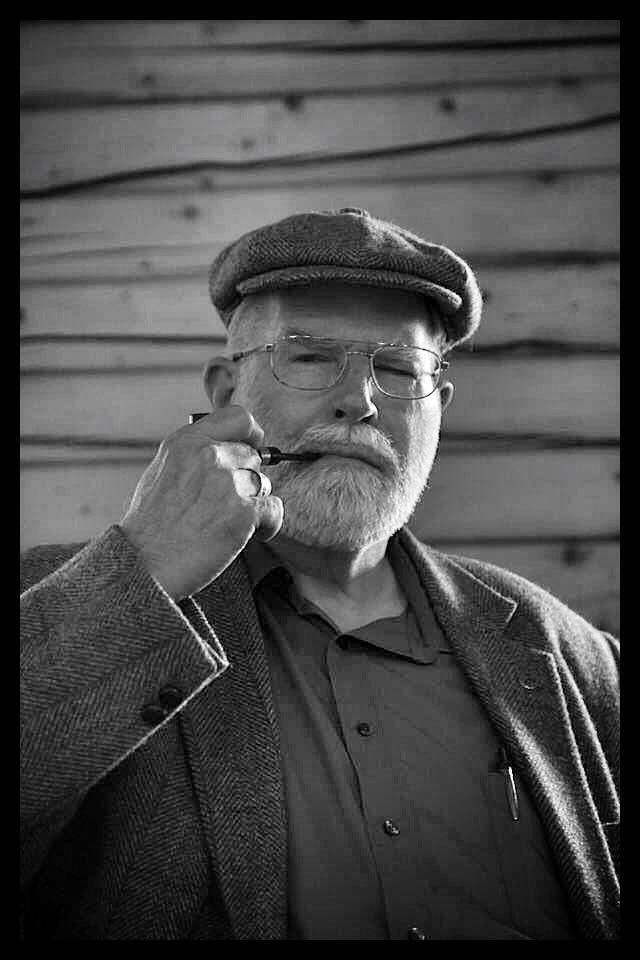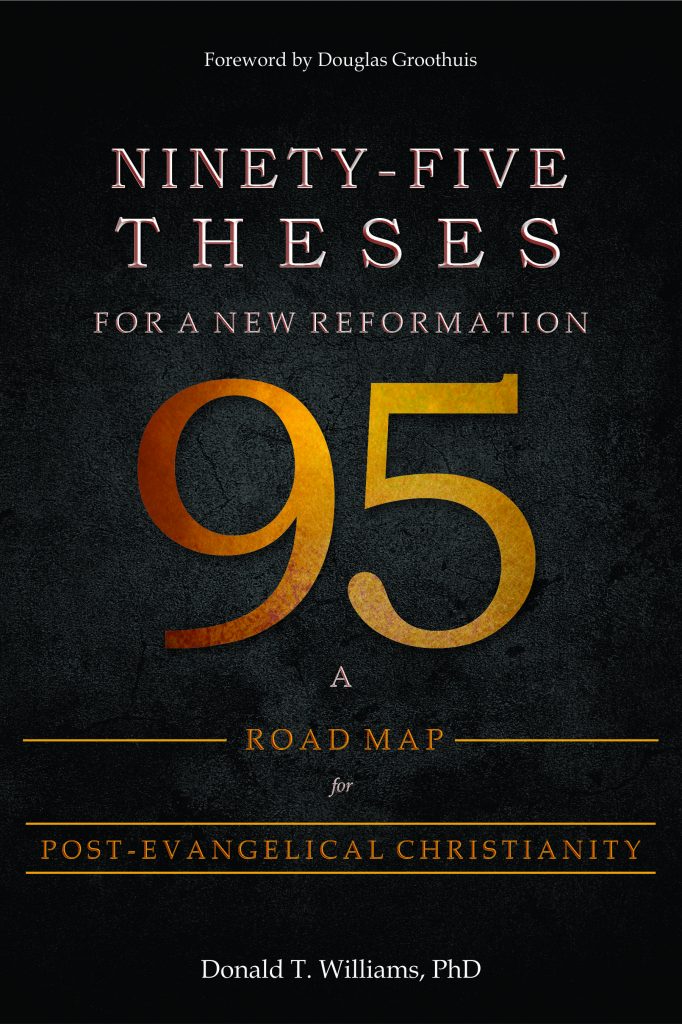We are looking at five theses on the proposition that Evangelicalism needs a new Reformation. We have seen that Reformation is a recovery of sound doctrine, especially as it relates to the Gospel, and that the historic Reformation was a fruit of Renaissance and a prerequisite to Revival. Then we saw some of the ways the Evangelical movement has been letting its Reformation heritage slip through its fingers. Last week we looked at some of the areas in which a new Reformation is required. Today we finish this series on Reformation by realizing that:
THESIS 5: THE ONLY WAY TO BE FAITHFUL TO THE ORIGINAL REFORMATION IS BY CONTINUING TO PURSUE THE ONGOING REFORMATION OF THE CHURCH.
One of the slogans of the Reformation that is often forgotten is that the church should be semper reformata, always reformed, because it is semper reformanda, always reforming. (Those actual phrases were coined a bit later, but the idea is certainly present in the Reformers.) It is a recognition that as a body whose membership on earth is made up entirely of sinners, the church always contains the seeds of its own destruction, seeds which will germinate the very moment it forgets its entire dependence on God’s Gospel for its existence, God’s Son as its Head, God’s Word for its direction, God’s Spirit for its power, and God’s grace for its health.
 Dr. Williams trying to always be reforming
Dr. Williams trying to always be reformingIt would be a capital mistake then to think that, if we could just implement the ninety-five proposals in my book on a new Reformation, all would be well, the church would march forward victoriously, and we could relax. I think it would be a great thing for the Evangelical movement and its churches and the Kingdom if even a goodly number of them were put on the ground, but that very day the temptation to compromise and corruption would already be at work. And the very next day, even if every reform was still preserved in its full integrity, new problems would come to light that would need to be addressed.
We should not be shocked by this realization. Even if we had living Apostles walking amongst us, we would not be exempt from the necessity of maintaining continual vigilance for Reformation. If we had the Apostle Paul with us today, he would have all he could do to protect some modern Galatia from contemporary Judaizers and some modern Corinth from itself. If John were still with us he would have no difficulty finding seven churches who needed to hear, “Yet I have somewhat against thee.” He who hath ears to hear, let him hear. This is what Reformation is all about. And, oh: We do still have them with us, through their writings in the New Testament! And so we must continue to follow them, beginning anew every day.
The very first of Martin Luther’s original theses portrayed the Christian life as one of continual repentance, for indeed the prayer for forgiveness is basic enough to find its place in the Lord’s model prayer.[1] We hope for many spiritual victories and many positive gains in sanctification, but neither churches nor individuals will in this life ever completely outlive the need to pray, “Forgive us our trespasses” (Mat. 6:12). Thankfully, if we are faithful to confess our sins, He is faithful and just to forgive us our sins, and cleanse us from all unrighteousness (1 John 1:9). That is what it is to be always reforming.
If ongoing Reformation is to be part of the church’s life, two practices must be faithfully maintained: speaking the truth in love and church discipline. Without an ingrained habit of speaking the truth in love, church discipline deteriorates into a witch-hunt for people who do not line up with every jot and tittle of our personal theological opinions. Without a serious commitment to discipline, the love with which we purport to speak the truth will quickly deteriorate into tolerance for every wind of doctrine and eventually heresy. If the Fundamentalist movement is replete with instances of the first failure, the Protestant mainline abounds with examples of the second—and too many Evangelical organizations are making up for lost time in catching up with it. In neither case can the church effectively function as the pillar and support of the truth which Paul insists it should be (1 Tim. 3:15).
 Part of how to stay reformed
Part of how to stay reformedTo maintain its integrity, every congregation, every denomination, every Christian school, college, or seminary, every mission board, and every parachurch organization needs to have a clear doctrinal statement which its officers and teachers are expected to sign annually. The statement should commit it to Nicene orthodoxy and to the five Reformation Solas, and be forthright and open about any denominational or doctrinal distinctives beyond that core of belief that the organization thinks are important. The organization should be up-front about and unashamed of its distinctives, but have a genuinely collegial and cooperative (yea, loving) relationship with any group that shares the doctrinal core. Its leadership should exercise continual pastoral oversight to see that its operatives fully embody the spirit as well as the letter of that doctrine. And its lay constituency must be diligent to see that these things are being done before they give it their membership, money, or time and labor. (If the constituencies of a number of Christian colleges knew what was being taught in their schools, they would be shocked and horrified.) Mutual accountability is not optional if any of our institutions are to be and remain healthy. None of this guarantees the ongoing Reformation of the church, but these are conditions that make it possible. They should therefore be maintained with diligence. It only requires one break in this chain of accountability for all to be undone.
CONCLUSION
The program laid out above makes ongoing Reformation possible, but even if all this is done it will not succeed without genuine love for the Lord, His Word, His Gospel, and His people, leading to radical dependence on His grace. Apart from these loves, no one should presume to handle sacred things. We should be asking God to call into ministry, and we should seek to promote into leadership, people of competence and discernment who have those loves deeply and show them infectiously. Then we might see here and now more foreglimpses of the church as she will be when she is revealed at the Marriage Feast: glorious, without spot or wrinkle, washed in the Blood of the Lamb. Even so, come, Lord Jesus!
For a more complete discussion of all these issues, see Dr. Williams’s new book Ninety-Five Theses for a New Reformation: A Road Map for Post-Evangelical Christianity (Semper Reformanda Publications, 2021). To order it, go here:
https://www.amazon.com/s?k=9781736676103&i=stripbooks&ref=nb_sb_noss
Donald T. Williams, PhD, is Professor Emeritus of Toccoa Falls College in the hills of NE Georgia. A border dweller, he stays permanently camped out on the borders between literature and theology, serious scholarship and pastoral ministry, Narnia and Middle-Earth. An Inklings scholar and Christian apologist, he is the author of many articles and thirteen books, including Deeper Magic: The Theology behind the Writings of C. S. Lewis (Square Halo Books, 2015), An Encouraging Thought: The Christian Worldview in the Writings of J. R. R. Tolkien (Christian Publishing House, 2018), The Young Christian’s Survival Guide: Common Questions Young Christians are Asked about God, the Bible, and the Christian Faith Answered (Christian Publishing House, 2019), Stars through the Clouds: The Collected Poetry of Donald T. Williams, 2nd ed. (Lantern Hollow Press, 2020), and Ninety-Five Theses for a New Reformation: A Road Map for Post-Evangelical Christianity (Semper Reformanda Publications, 2021).
[1] John Warwick Montgomery, In Defense of Martin Luther (Milwaukee: Northwestern Publishing House, 1970), p. 20.
 Dr. Williams’s Book
Dr. Williams’s Book
Related